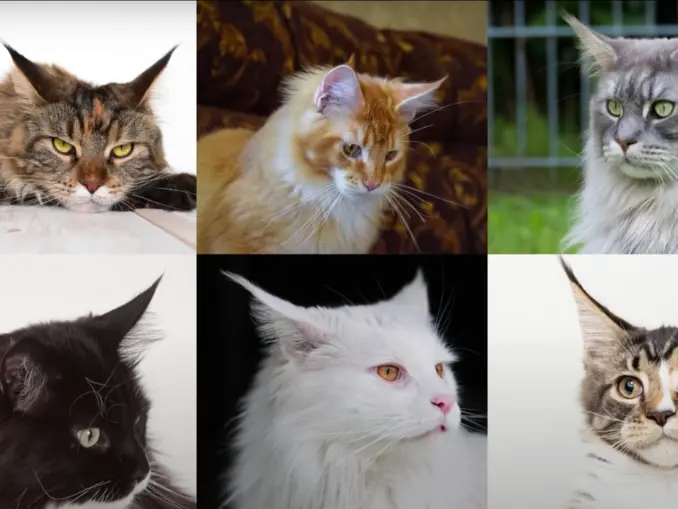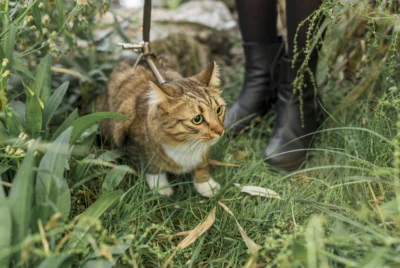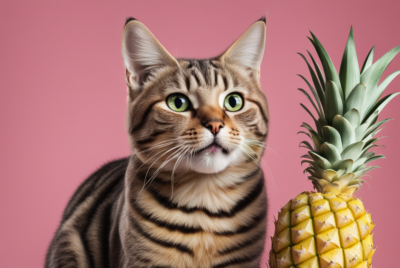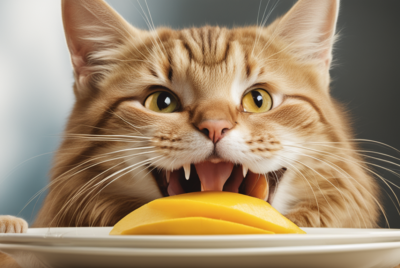Discovering the Majestic Maine Coon Cat Breed
Discover the world of the majestic Maine Coon cat breed, a gentle giant full of personality and charm. In this journey, we’ll explore their fascinating history, impressive size, and playful nature.
We’ll delve into potential health concerns, grooming, feeding, and training tips, and even help you find your perfect Maine Coon companion. Get ready to fall in love with this remarkable breed.
The Origins of Maine Coon Cats
The Maine Coon cat breed’s origins are shrouded in mystery. Many believe that early American explorers brought foreign long-haired cats to Maine, which eventually mated with native short-haired breeds. These cats, native to the United States, gained the status of being Maine’s official state cat in 1985.
Throughout the 19th century, Maine Coons enjoyed popularity in cat shows, including at Madison Square Garden. Cosey, a Maine Coon, was awarded Best in Show at the inaugural North American cat show, and her silver collar is now exhibited at the headquarters of the Cat Fanciers’ Association (CFA) Foundation.
These cats regained popularity in the 1960s, and the Maine Coon Breeders and Fanciers Association was established in 1968. The modern Maine Coon still possesses many traits from its earliest form, such as a coat tolerant to cold weather and a high prey drive.
Theories abound regarding the origin of the Maine Coon’s name, with some suggesting that the breed’s ancestors can be traced back to a sailor known as Charles Coon. Others believe the cat’s bushy tail is reminiscent of a raccoon’s.
Maine Coon Cats and Colors
- Solid Color: These Maine Coons have a single, uniform coat color. Common solid colors include black, blue Maine coon (gray), cream, white, silver, brown, golden, and red (orange Maine coon).
- Parti-color: Parti-color Maine Coons have a mix of two or more colors in their coat. Common parti-color patterns include tortoiseshell (a mix of black, red, and sometimes cream), calico (tricolor with white), bluecream (blue and cream), and tortie/white (tortoiseshell with white). Parti-color patterns are often seen in females.
- Bi-color: Bi-color Maine Coons have a combination of colors, one being white. Examples include black/white Maine coon, blue/white, cream/white, and red (orange)/white. These cats typically have a predominantly white coat with patches of another color.
- Tabby: Tabby Maine Coons have distinctive striped patterns on their fur. There are different types of tabby patterns, including:
- Classic tabby: Swirls with a butterfly pattern on the shoulders.
- Mackerel tabby: Narrow, parallel stripes.
- Spotted tabby: Spots instead of stripes.
- Ticked tabby: Several bands of color on each hair, with barring on the legs and tail. Brown tabby is the most common tabby pattern in Maine Coons, although the ticked pattern is accepted by certain cat associations’ breed standards.
- Tabby with White: Maine Coons with tabby patterns can also have white markings along with their tabby stripes.
- Shaded (Smoked): Shaded or smoked Maine Coons have a gradual fading of color from darker at the top to lighter at the bottom, creating a beautiful smoky appearance.
- Shaded (Smoked) with White: These cats combine the shaded or smoked pattern with white markings.
The Size and Physique of Maine Coon Cats
The Maine Coon cat is the largest domestic cat breed, with the following characteristics:
- Males typically weigh between 18-25 pounds
- Females typically weigh between 10-14 pounds
- Solid, rugged physique that is well-proportioned and balanced
- Muscular, long, and rectangular body
- Broad chest
- Large round paws with tufts of hair on the toes
- High cheekbones
- Square muzzle
- Large, well-tufted ears
Their thick, shaggy coat presents a variety of colors and patterns, except for chocolate, lavender, and the Himalayan (pointed) pattern.
The coat is long and silky, growing shorter near the shoulders, and is accompanied by a ruff on the chest. This unique coat is not only beautiful but also serves a practical purpose, as it helps Maine Coons endure harsh New England winters.
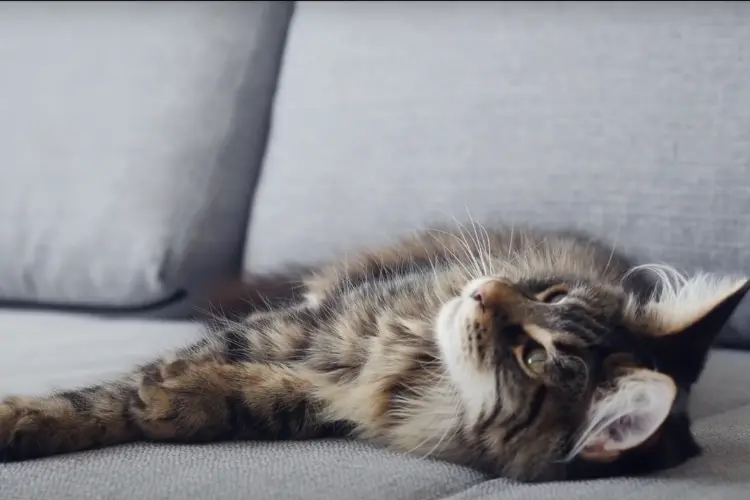
Growth and Maturity
Maine Coon cats:
- Mature slowly, reaching their full size between the ages of 3 to 5
- Males tend to be larger and heavier than females
- Have a slower growth rate than other cat breeds
The size of Maine Coon parents can impact the growth and maturity of their offspring. If the parents are of a smaller stature, there is a greater likelihood that their offspring will also be small. However, other factors such as genetics, diet, and exercise can also affect the size a Maine Coon will reach.
The Playful and Affectionate Nature of Maine Coons
Maine Coon cats stand out for their intelligence, friendliness, and gentle nature. They are accommodating playmates for gentle children and can peacefully share a home with other pets, such as cats and dogs that are receptive to felines.
Although their large size may prevent them from being typical lap cats, they still enjoy human companionship and affection. Maine Coon kittens, in particular, are playful and loving demeanor.
One of the most endearing aspects of Maine Coon cats is their unique vocalizations. Instead of the typical meow, they tend to chirp, chatter, and trill, which adds to their charming personality. Maine Coons also demonstrate some canine-like behaviors, such as their affinity for water and propensity to engage in fetching activities.
Maine Coons have natural aptitude for catching mice and engaging in fetch-like activities. While they possess the same climbing capabilities as other cats, they typically remain at ground level, showcasing their preference for interactive play.

Health Concerns and Genetic Predispositions
Maine Coon cats, while generally are a healthy breed, are predisposed to some health issues like hypertrophic cardiomyopathy (HCM), dental disease, and joint conditions such as arthritis and hip dysplasia.
Regular veterinary check-ups and proper care can help maintain their overall health. It is important for Maine Coon breeders to have their adult cats tested for health issues before breeding them.
Hypertrophic cardiomyopathy (HCM) is an abnormal thickening of one or several areas of the heart’s walls, typically the left ventricle. To diagnose HCM, there are various tests which may be carried out.
These tests include X-rays, electrocardiograms (ECG), blood work, and blood pressure monitoring. Treatment for HCM in cats can involve hospitalization to manage congestive heart failure, characterized by abnormal fluid accumulation in the lungs. Generally, oxygen therapy, diuretics, blood pressure monitoring, and medications to improve the heart’s efficiency are recommended.
To prevent oral diseases like juvenile gingivitis, Maine Coon cats need regular dental care. I recommend daily brushing of the cat’s teeth and regular veterinary examinations.
Grooming and Coat Care for Maine Coon Cats
Regular grooming is required for a Maine Coon cat’s thick, shaggy coat to avoid matting and tangling. I suggest weekly brushing and monthly bathing to keep their coats in optimal condition. The Maine Coon’s coat comes in various colors and patterns, which adds to their natural beauty.
In addition to coat care, it is important to maintain proper ear care. Keeping their ears clean and dry can help prevent ear infections. Signs of an ear infection may include red ear canals, an odor, and discharge.
Maintaining good litter box hygiene is also crucial for the overall health. Keeping the litter box clean can help prevent urinary tract infections and other health issues.

Feeding and Nutrition Guidelines
The health and well-being of your Maine Coon cat rely heavily on appropriate feeding and nutrition. Here are some tips to ensure their optimal health:
- Provide a protein-rich diet
- Choose cat foods with an AAFCO nutritional adequacy statement suitable for their life stage
- Monitor their weight to prevent them from becoming flabby or overweight
I suggest putting extra wide food and water bowls to accommodate their larger size. Moreover, it is generally unnecessary to add supplements to a cat’s diet unless advised by a veterinarian.
Training and Socialization Tips
Maine Coon cats are highly intelligent and can be trained easily, thanks to their adaptability and inquisitiveness. They can be taught to walk on a leash outdoors or even play a game of fetch. They are able to quickly pick up basic housetraining and litter box usage.
To prevent them from becoming timid and withdrawn, these cats need to be socialized early. If you are considering bringing a Maine Coon kitten into a family home, it is advisable to allow the various family members to handle the kitten gently daily and introduce it to other animals if possible.
Maine Coon cats are receptive to positive training methods and palatable food treats. Providing at least 10 minutes of playtime daily can help keep your Maine Coon mentally and physically stimulated.
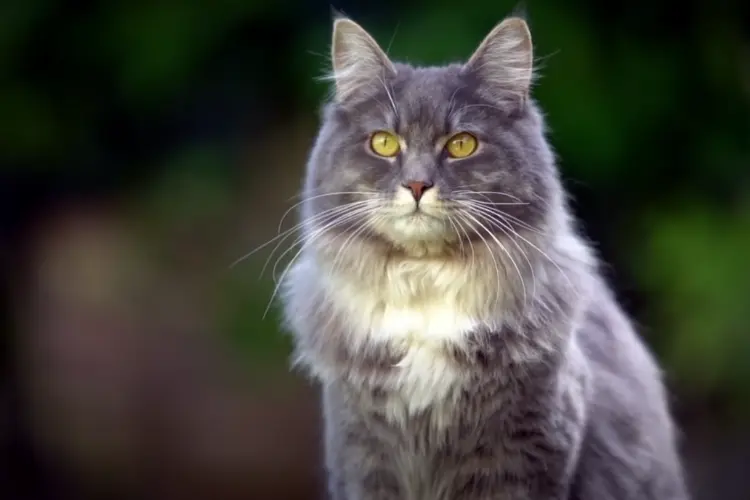
Finding Your Perfect Maine Coon Companion
If you’re considering adopting or purchasing a Maine Coon cat, assessing reputable breeders and Maine Coon rescue organizations is crucial. Reputable breeders should:
- Be knowledgeable about pedigree lines
- Focus on breeding for good character traits and health
- Have membership in reputable cat breeding organizations
- Have a track record of producing healthy kittens
For a new kitten, reputable breeders are the optimal source. Adult Maine Coon cats and Maine Coon mixes can also be found at animal shelters or breed-specific cat rescue groups. The cost of a purebred Maine Coon cat typically ranges from $1000 to $3000.
When seeking your perfect Maine Coon companion, remember the breed’s unique personality, size, and grooming requirements. This will help ensure that you find a cat that is the perfect fit for your lifestyle and home.
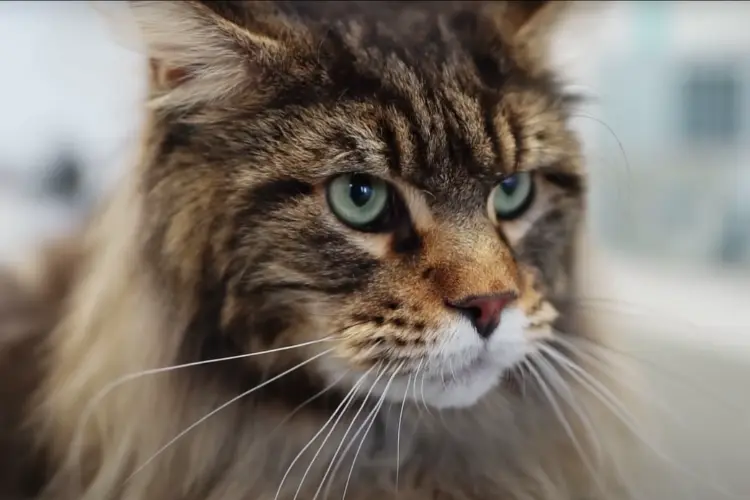
Living with a Maine Coon Cat
Sharing your life with a Maine Coon cat provides a delightful experience filled with affection, playfulness, and the gratification of caring for such a magnificent feline companion. To ensure the well-being of your cat, provide them with affection, exercise, and larger furniture, such as cat trees, to accommodate their size.
Maine Coons aren’t fond of solitude and flourish best in an interactive environment. It is recommended that Maine Coon cats reside in an indoor-only environment to safeguard them against diseases spread by other cats, attacks by dogs or coyotes, and other potential risks that cats may face when outdoors.
A tree of at least 6 feet in height with a stable base should provide your large cat ample space to extend and ascend.
Frequently Asked Questions
What two breeds make a Maine Coon?
Maine Coons are believed to result from breeding between Turkish Angoras and local short-haired cats, developed after six Angoras arrived in Maine aboard a ship during the French Revolution.
Can a Maine Coon be a house cat?
Yes, Maine Coons can be house cats due to their fairly laid back personality. Many owners prefer to keep them inside as they can get stolen outdoors.
What is the average weight of a Maine Coon cat?
On average, Maine Coon cats weigh between 9 and 18 pounds.
What are the unique vocalizations of Maine Coon cats?
Maine Coons are known to vocalize in unique ways, such as chirping, chattering, and trilling instead of meowing.
What are the potential health issues of Maine Coon cats?
Maine Coon cats are particularly susceptible to hypertrophic cardiomyopathy (HCM), dental disease, and joint-related conditions such as arthritis and hip dysplasia, making it important for owners to monitor their cat’s health.
Summary
Throughout this journey, we’ve discovered the majestic world of the Maine Coon cat breed, exploring their fascinating history, impressive size, and playful nature. We’ve learned about their health concerns, grooming needs, feeding guidelines, and training tips, as well as how to find the perfect Maine Coon companion.
As we conclude, we hope this information has inspired you to welcome a Maine Coon cat into your life or to appreciate their unique qualities. Embrace the beauty, charm, and affection of these gentle giants, and treasure the memories you create together.

